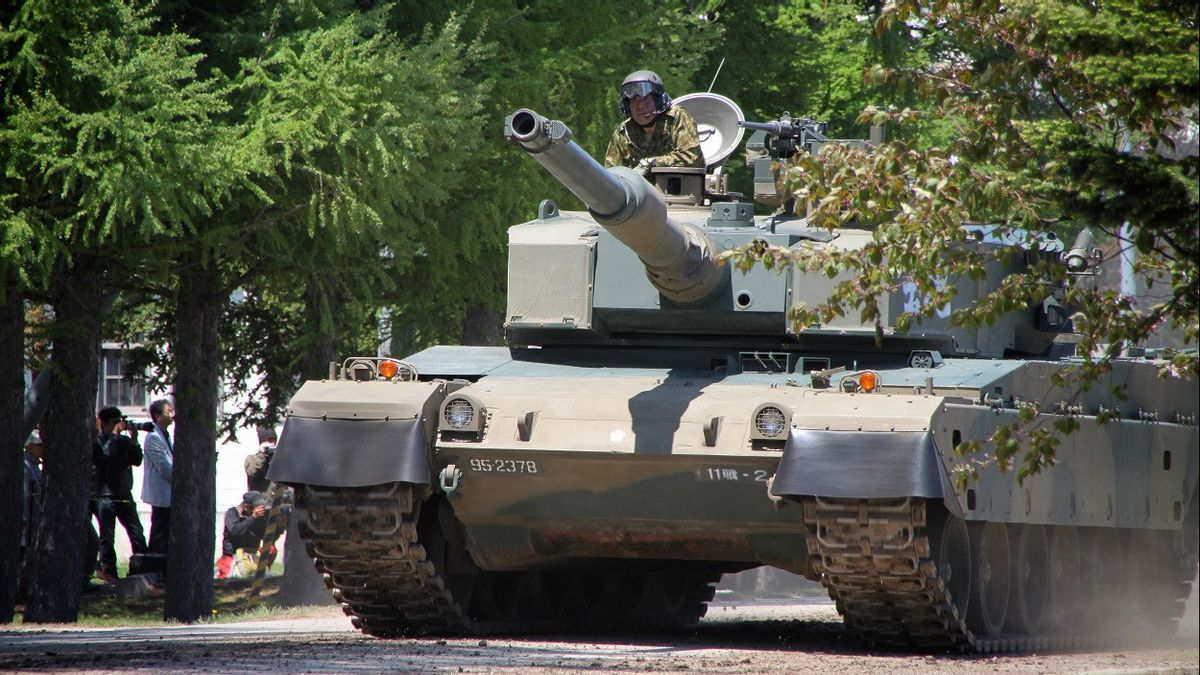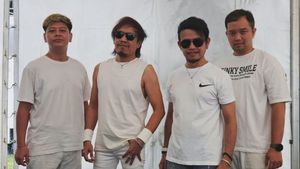JAKARTA - The Japanese government launched its biggest military build-up since the Second World War with a plan worth $320 billion on Friday, including buying missiles capable of reaching China, anticipating regional tensions and Russia's invasion of Ukraine sparked fears of war.
The broad five-year plan, which used to be thoughtless in Japan, would make the country the third-largest military spender in the world after the United States and China, based on the current budget.
Prime Minister Fumio Kishida, who described Japan and its people as "a turning point in history", said the upgrade was "my responsibility for the various security challenges we face," Reuters reported December 16.
The Japanese government is concerned that Russia has set a precedent that will encourage China to attack Taiwan, threatens nearby Japanese islands, disrupts sophisticated semiconductor supplies and has the potential to destabilize sea lanes that supply Middle Eastern oil.
"This is a new direction for Japan. If implemented properly, the Self-Defense Forces will be an effective world-class real force," said Yoji Koda, former executor of the Maritime Self-Defense Forces, who led the Japanese fleet in 2008.
The government said it would store spare parts and other ammunition, expand transportation capacity and develop cyber warfare capabilities.
In its postwar constitution, made by America, Japan has given up the right to wage war and the means to do so.
"Russian invasion of Ukraine is a serious violation of laws that prohibit the use of force and shake the foundations of the international order," the strategy paper said.
"The strategic challenge posed by China is the biggest Japan has ever faced," he added, also noting that Beijing has not ruled out the use of force to bring Taiwan under its control.
Separate national security strategy documents pointing to China, Russia, and North Korea, promise close cooperation with the United States and other countries of the same mind to prevent threats to the established international order.
"The Prime Minister made a clear and unambiguous strategic statement about Japan's role as a security provider in the Indo-Pacific," US Ambassador to Japan Rahm Emanuel said in a statement.
"He has placed the capital letter "D" next to Japan's deterrence," he added.
It is known that China's defense spending surpassed Japan at the turn of the century, and now has a military budget of more than four times greater.
Too few ammunition and the lack of parts to land the plane and keep other military equipment out of service is the most pressing issue Japan has to deal with, a military source told Reuters.
"The Ukrainian war has shown us the need to defend the fighting, and it is something Japan has not prepared so far," said Toshimichi Nagaiwa, retired General of the Self-Defense Air Force.
"Japan started late, like we are 200 meters behind in a 400-meter sprint," he added.
PM Kishida's plan to double defense spending to about 2 percent of gross domestic product over five years, has exceeded the country's 1 percent spending limit since 1976.
This will increase the Ministry of Defense's budget to about a tenth of all public spending at current levels, and will make Japan the third largest military spender in the world after the United States and China, based on current budgets.
Shopping royally will provide jobs to Japanese military equipment makers such as Mitsubishi Heavy Industries, which is expected to lead the development of three long-range missiles that will become part of Japan's new missile power.
The MHI will also build its next Japanese fighter jets with the BAE Systems PLC and Leonardo SPA in a joint project between Japan, England, and Italy announced last week. Tokyo allocated $5.6 billion for that in a five-year defense program.
Foreign companies will also benefit. Japan said it wanted the US Tomahawk cruise missile made by Raytheon Technologies launched by the ship to be part of its new deterrence force.
Other items on Japan's military spending list over the next five years include interceptor missiles for ballistic missile defenses, attack and reconnaissance drones, satellite communications equipment, Lockheed Martin F-35 stealth fighters, helicopters, submarines, warships, and heavy transport jets.
For the spending, the government on Friday said it would raise revenue taxes on tobacco, companies and disaster reconstruction. However, with opposition to the tax increase within the ruling Liberal Democrat party still strong, the Japanese leader has not said when he will apply the higher tariff.
The English, Chinese, Japanese, Arabic, and French versions are automatically generated by the AI. So there may still be inaccuracies in translating, please always see Indonesian as our main language. (system supported by DigitalSiber.id)













